Obituary
Beloved bartender Rudi Appl dies at 79
Worked at Mr. Henry’s restaurant and pub
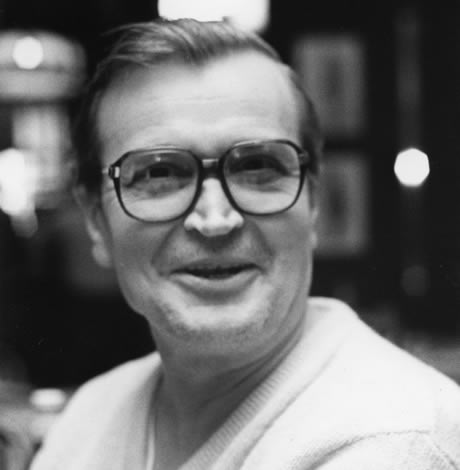
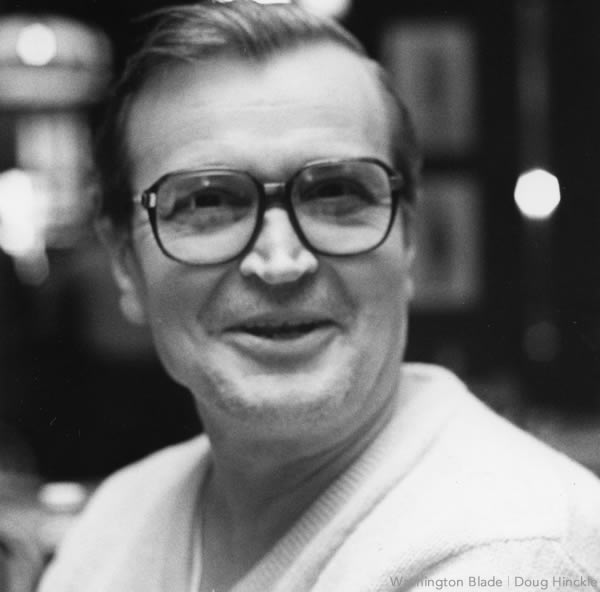
Rudy Appl (Washington Blade archive photo by Doug Hinckle)
Rudi Appl, a bartender at Mr. Henry’s restaurant and pub on Capitol Hill for nearly 50 years, died July 16 at his home from complications associated with heart disease. He was 79.
Longtime friends and co-workers at Mr. Henry’s say Appl’s bright and charming personality, his skills as a listener and conversationalist along with his distinctive accent as a native of Czech Republic appeared to immediately win over the affection of everyone that came in contact with him.
“I never heard him ever say a bad word about anybody,” said Walter Quetsch, a longtime Capitol Hill resident and Mr. Henry’s patron in whose basement apartment Appl lived for the past 33 years as a tenant.
“For him, everybody had a redeeming feature,” Quetsch said. “He mixed with everybody. He knew how to mix with people as well as he knew how to mix drinks.”
Chuck Sharman, a fellow bartender at Mr. Henry’s and a friend of Appl’s, said he has a copy of one of Appl’s immigration documents that shows he was born June 6, 1935 in Brno, the largest city in the region of Moravia in what was then Czechoslovakia and is now part of the Czech Republic.
“I well recall my first shift with Rudi at Mr. Henry’s, on a slow night upstairs,” Sharman told the Blade. “With hours to kill, he led me through a lengthy and colorful autobiography.”
Friends point to what they call Appl’s fascinating and colorful background prior to his move to Washington in 1966 that emerges from people like Sharman and others who knew Appl. More details of Appl’s background surfaced in a an interview and detailed profile of Appl written in May of this year by local businessman and writer Joe Englert for the Washington City Paper.
Englert reports that Appl told him that at the age of 9 his father arranged for him to escape World War II in Europe by sending him to Beirut, where he was enrolled in the American School. After the war the family reunited in Frankfurt, Germany, and settled there for a number of years, Appl said in his interview with Englert.
At about the age of 21 he and his parents moved to Canada and settled in the Canadian Rockies, where Appl worked for a while in the oil fields as a “roughneck.” He later began work in the hospitality industry at a resort near Alberta before going to Nassau in the Bahamas to work at the Paradise Island resort owned by famed businessman and A&P Supermarket heir Huntington Hartford, according to Englert’s profile.
Appl says in the interview that he became Hartford’s drinking buddy and assistant and had a chance to mingle with the rich and famous at the resort and during trips with Hartford to Hollywood. He first came to D.C. in 1963, became attracted to the U.S. capital, and traveled back and forth between Paradise Island and Washington until he decided to settle in D.C. for good in 1966, Englert reports in his profile.
Alvin Ross, the current owner of Mr. Henry’s, said he met Appl and became friends with him when the two first started working there as bartenders. The late Henry Yaffe, the founder and original owner of Mr. Henry’s, had just bought the establishment, which, at the time, had been operating as a country-western bar called the 601 Club, Ross told the Blade. Ross said Appl had been working at the 601Club “and came with the bar as part of the deal” when Yaffe bought the business.
Yaffe transformed the place into a Victorian pub, with furnishings and decorations of the Victorian period of the late 1800s, when many of Capitol Hill’s homes and buildings, including the nearby Eastern Market, sprung up in the surrounding neighborhood.
Appl, who was gay, got along well with the highly diverse crowds that have patronized Mr. Henry’s, both gay and straight, black and white, and families with children, according to longtime customers.
Ross noted that Appl at some point moved into the second-floor apartment above Mr. Henry’s as a tenant shortly after Yaffe became the owner. Ross and others who knew Appl have said he loved to tell the story of how he was “evicted” from the apartment as a result of famed singer and songwriter Roberta Flack, who got her career start at Mr. Henry’s.
As Appl told friends, he took a vacation in Europe to visit relatives after Flack began performing there in the late 1960s. During his absence Flack became such a sensation and an attraction that Yaffe converted the apartment into an extended space for Mr. Henry’s, where Flack performed to overflowing audiences.
Upon his return to Washington Appl discovered he no longer had an apartment, joking to friends that he was evicted because of Roberta Flack. However, he quickly found another apartment and continued to work at Mr. Henry’s as a bartender. A short time later, he moved into the English basement apartment at Quetsch’s townhouse on the 300 block of C Street, S.E., where he remained until the time of his death.
“Somehow or other we came to an agreement that he didn’t have to pay rent,” Quetsch said.
Englert reports in his City Paper profile that in the following years Appl, while working as a bartender, became a part-time real estate investor, buying and selling houses in the rapidly gentrifying Capitol Hill neighborhoods in the 1970s. The extra income enabled Appl to pursue his love for traveling throughout the U.S. and Europe as well as other places such as Thailand.
Ann Bradley, a longtime Capitol Hill resident and Mr. Henry’s patron who, like many others, became friends with Appl, said she enjoyed listening to his frequent stories about getting to know famous people, including Hollywood celebrities.
Bradley told the Blade she remained a bit skeptical, thinking that Appl may have embellished some of these stories. But around 1984, when Appl took her to a D.C. nightclub to see famed singer Peggy Lee perform, she witnessed first-hand his connection with at least one mega-star.
“After the show ended he said I’m going to go up and say hello to Peggy,” Bradley said. “And I thought, umhum, yeah right. He walked up and said something. And she didn’t say Hi Rudi,” Bradley recounted. “But she did say, ‘Oh, how are you!’ And they started talking and everything,” convincing Bradley that Peggy Lee genuinely appeared to recognize and show affection for Appl.
“The man was just unbelievable,” Bradley said. “He never had a bad day. He always had this positive attitude.”
Eric Monaghan, a longtime friend and next-door neighbor, said Appl became a mentor to him after the two first met in the early 1970s.
“Rudi was someone you meet and almost immediately want to keep on the first page of your telephone book,” Monaghan said. “You can’t file him alphabetically but as a major influence in your life.”
Terry Michael, executive director of the Washington Center for Politics and Journalism, has for years been among the wide range of Mr. Henry’s customers that have gotten to know Appl, including congressional staffers, politicians, journalists and ordinary working people.
“In my 40 years in these 68.3 miles surrounded by reality, I have seen much change,” Michael said. “But Rudi was a constant presence and force in a place that was a hangout for so many of us. With a constant smile on his face and a twinkle in his eyes, he exuded energy that was infectious.”
Ross said that because of his declining health, Appl had to cut back on the days he worked in recent years. In the last three or four months, Appl wasn’t able to work at all following the replacement of a heart pacemaker and additional complications associated with his heart ailment.
However, on his 79th birthday on July 6, Appl returned to Mr. Henry’s where employees and friends helped him celebrate.
“We had him come in and basically stay behind the bar and talk to people who came in to see him,” Ross said. “And he enjoyed that, but that was really his last day working.”
Sharman, who has access to some of Appl’s personal documents, said he is survived by two brothers who currently live in Germany and three nephews, two of whom live in Germany and one in Switzerland.
Ross said a memorial tribute for Appl is tentatively scheduled for Saturday, Sept. 6 in the upstairs room at Mr. Henry’s. He said further details of the memorial event will be announced on the Mr. Henry’s Facebook page.
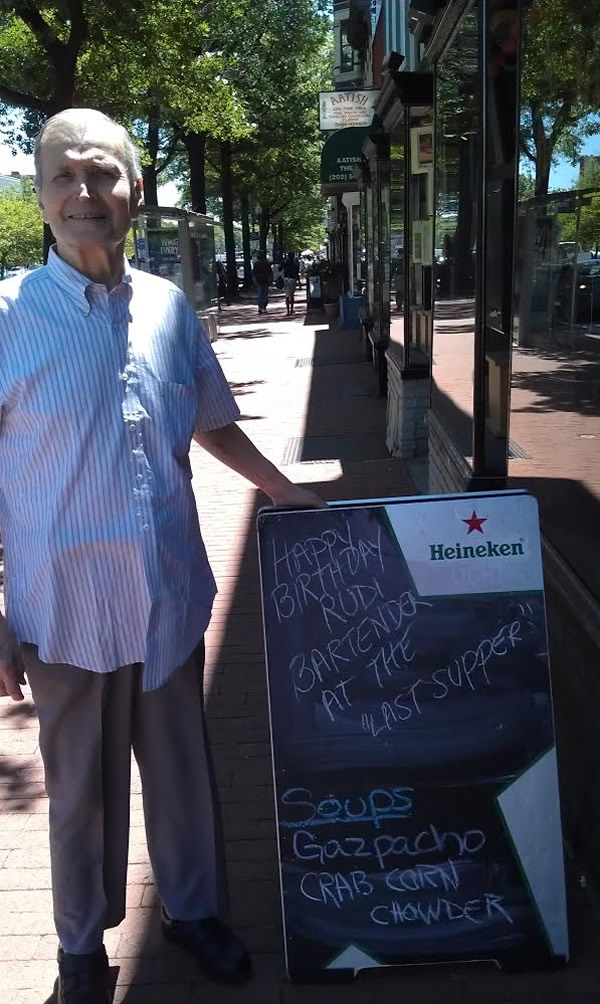
Rudi Appl stood outside Mr. Henry’s on his 79th birthday on July 6 next to a sign bearing an inscription by his friend and Mr. Henry’s owner Alvin Ross meant as a joke about Appl’s long tenure at the popular restaurant: ‘Happy Birthday Rudi — bartender at The Last Supper.’ (Photo courtesy of Caroline Shook)
District of Columbia
Acclaimed bisexual activist, author Loraine Hutchins dies at 77
Lifelong D.C.-area resident was LGBTQ rights advocate, sex educator
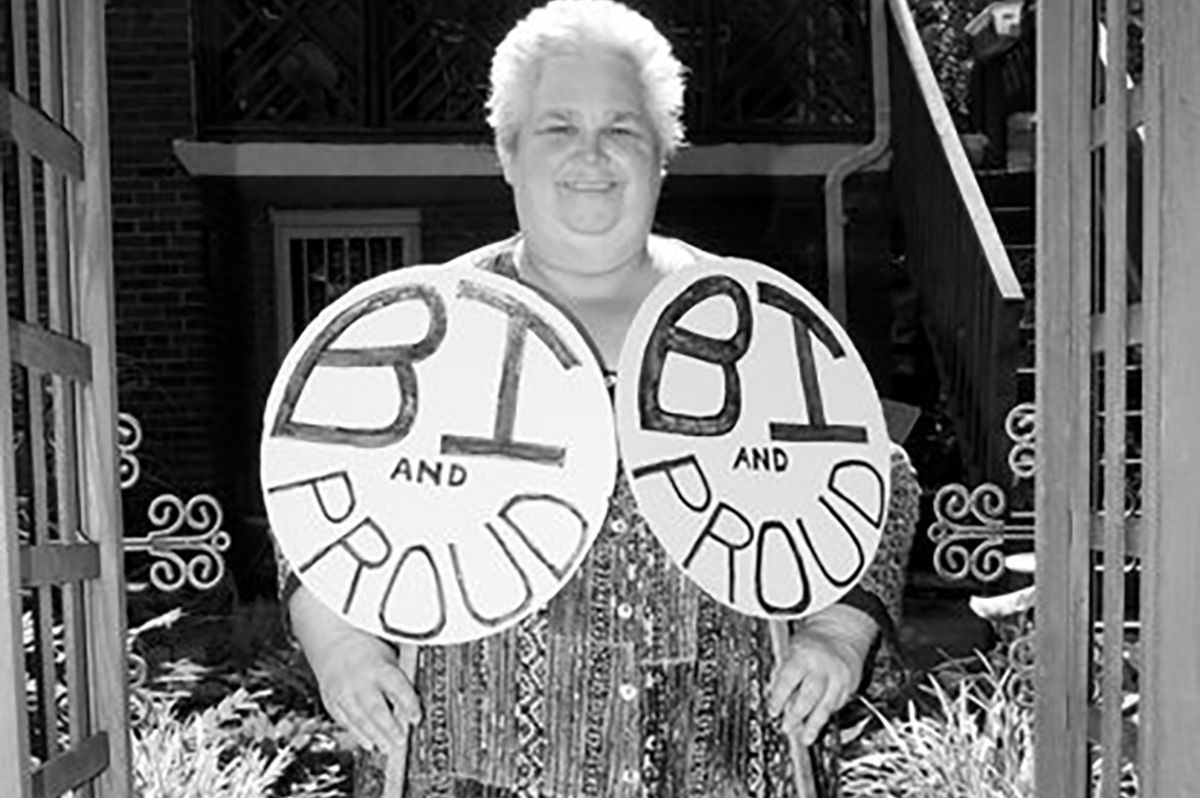
Loraine Adele Hutchins, a nationally known and acclaimed advocate for bisexual and LGBTQ rights, co-author and editor of a groundbreaking book on bisexuality, and who taught courses in sexuality, and women’s and LGBTQ studies at a community college in Maryland, died Nov. 19 from complications related to cancer. She was 77.
Hutchins, who told the Washington Blade in a 2023 interview that she self-identified as a bisexual woman, is credited with playing a lead role in advocating for the rights of bisexual people on a local, state, and national level as well as with LGBTQ organizations, many of which bi activists have said were ignoring the needs of the bi community up until recent years.
“Throughout her life, Loraine dedicated herself to working and speaking for those who might not be otherwise heard,” her sister, Rebecca Hutchins, said in a family write-up on Loraine Hutchins’s life and career.
Born in Washington, D.C., and raised in Takoma Park, Md., Rebecca Hutchins said her sister embraced their parents’ involvement in the U.S. civil rights movement.
“She was a child of the ‘60s and proudly recalls attending Martin Luther King’s ‘I Have a Dream’ speech with her mother on the D.C. Mall,” she says in her write-up. “She was steeped in the civil rights movement, was a member of the Student Non-Violent Coordinating Committee, and was proud to say she had an FBI record.”
The write-up says Hutchins received a bachelor’s degree from Shimer College in Mount Carroll, Ill. in 1970, and a Ph.D. in 2001 from Union Institute. It says she was also a graduate of the Institute for the Advanced Study of Human Sexuality’s Sexological Bodyworkers certification training program.
The family write-up says in the 1970s Hutchins became involved with efforts to assist tenants, including immigrant tenants, in affordable housing programs in D.C.’s Adams Morgan neighborhood.
“In 1991, she co-authored the groundbreaking book, ‘Bi Any Other Name: Bisexual People SPEAK OUT’ with friend and colleague Lani Ka’ahumanu,” the write-up says. It notes that the acclaimed book has been republished three times and in 2007 it was published in Taiwan in Mandarin.
According to the write-up, Hutchins delivered the keynote address in June 2006 at the Ninth International Conference on Bisexuality, Gender and Sexual Diversity. In October 2009, D.C.’s Rainbow History Project honored her as one of its Community Pioneers for her activist work.
“Loraine is one of the few people who has explained, defended and championed bisexuality and made sure the “B” got into the LGBT acronym,” the Rainbow History Project says on its website in a 2009 statement. “Sensitivity to bisexual issues, civil rights, and social justice issues is Loraine’s life work,” the statement concludes.
The write-up by her sister says that up until the time of her retirement, Hutchins taught women’s and LGBT studies as well as health issues in sexuality at Montgomery Community College and Towson University in Maryland.
“She was a friend and mentor to many in the LGBTQ community,” it says. “She thoroughly enjoyed adversarial banter on the many topics she held dear: sexuality, freedom of speech, civil rights, needs and support of those with disabilities, especially in the area of mobility, assisted housing, liberal politics and many other causes,” it points out.
She retired to the Friends House community in Sandy Springs, Md., where she continued her activism, the write-up concludes.
Hutchins was among several prominent bisexual activists interviewed by the Washington Blade at the time of her retirement in June 2023 for a story on the status of the bisexual rights movement. She noted that, among other things, in her role as co-founder the organizations BiNet USA and the Alliance of Multicultural Bisexuals, she joined her bi colleagues in prodding national LGBTQ advocacy organizations to improve their advocacy work for bisexuals, which Hutchins said had been inadequate in the past but had been improving in recent years.
Hutchins is survived by her sister, Rebecca Hutchins; her husband, Dave Lohman; nephew, Corey Lohman and his wife Teah Duvall Lohman; and cousins, the family write-up says.
It says a private memorial service was scheduled for December and a public memorial service recognizing her contributions to the LGBTQ community will be held in the spring of 2026.
Obituary
Acclaimed disability rights advocate Thomas Mangrum dies at 61
Lifelong D.C. resident also served as ‘cherished’ Capital Pride volunteer
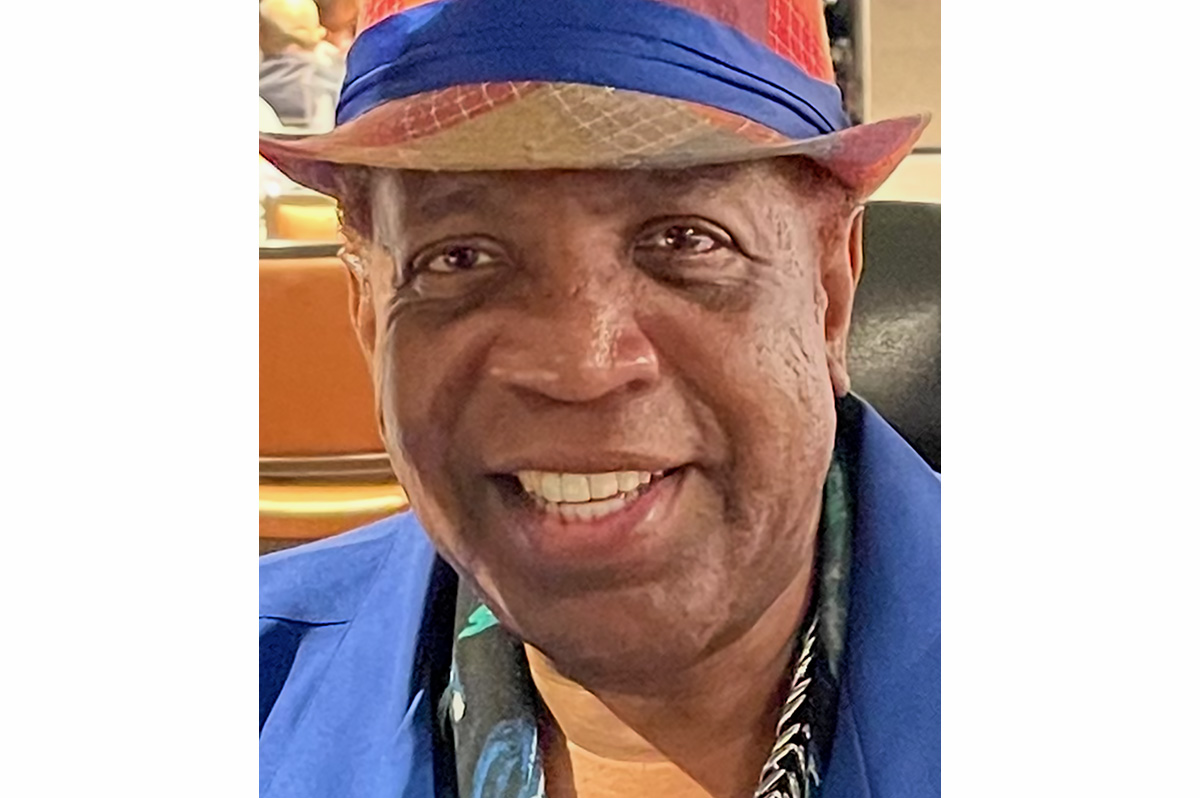
L. Thomas Magnum Jr., a lifelong D.C. resident, widely recognized and acclaimed advocate for people with disabilities, and LGBTQ rights activist involved in the city’s Capital Pride events, died Sept. 17 from complications related to stomach cancer. He was 61.
A statement released by Project ACTION!, a local disability advocacy organization for which Mangrum served for 15 years as co-president, says he worked for more than 20 years for the D.C.-based Maurice Electric Supply company before retiring in 2002 and devoting his efforts to disability-related projects and programs.
Phylis Holton, an official with the D.C. organization Quality Trust For Individuals With Disabilities and a longtime friend of Mangrum, said as a person with a developmental disability Mangrum devoted his life to supporting others with all forms of disabilities. She said that due to a separate spinal condition, Mangrum used a wheelchair for about 15 years prior to his passing.
Holton said Mangrum had a mild form of developmental disability, which the U.S. Centers for Disease Control and Prevention describes as “a group of conditions due to an impairment in physical, learning, language or behavior areas” that usually develops before a child is born during pregnancy.
Holton said Mangrum was an active member of Project ACTION! for 15 years prior to the 15 years he served as the organization’s co-president.
“He traveled nationally and presented at conferences, was featured on webinars and podcasts on a variety of topics related to self-advocacy, accessibility, equality, and more,” Holton told the Washington Blade in a statement.
“He shared his lived experience of being a Black man with a disability, and being gay, and how it impacted how he was treated in the community,” Holton said. “He was a strong advocate and co-facilitated trainings for independent advocacy organizations that Thomas supported and was a key advocate in their advocacy work,” she said.
Holton added, “He would answer a late request to train a group of attorneys, present at a meeting or testify before City Council or meet with an advocacy group to advance pending legislation that impacted people with disabilities.”
She said Mangrum also enjoyed participating in LGBTQ Pride events and last year traveled to the New York Pride events. According to Holton, he looked forward to participating in WorldPride 2025 events earlier this year in D.C. “but his illness prevented him from doing so.”
In a statement announcing Mangrum’s passing, Capital Pride Alliance, the group that organizes D.C.’s annual LGBTQ Pride events and served as the lead organizer of WorldPride 2025 in D.C., called Mangrum a “cherished volunteer” for D.C. Pride events.
June Crenshaw, the Capital Pride Alliance Deputy Director, said Mangrum served as a volunteer for D.C.’s LGBTQ Pride events “for many years” and was involved in many of the planning activities for WorldPride before his illness prevented him from participating in WorldPride earlier this year.
“He certainly in my interaction with him made me very aware of making sure that Capital Pride was thinking about accessibility always, and making sure that we had a welcoming, affirming accessible space for participants and staff with disabilities,” Crenshaw said.
In its statement on Mangrum’s career and accomplishments in life, Project ACTION! says he helped to advance the needs of people with disabilities through service on many boards and commissions. Among them were Lifeline Partnership, the D.C. Developmental Disabilities Council, the D.C. Center for Independent Living, the Washington Metropolitan Area Transportation Authority’s Accountability Advisory Committee, “and many more.”
“His leadership, passion, and unwavering commitment to equity and inclusion made a lasting impact on all who had the privilege to know and work alongside him,” the statement says.
It adds, “Thomas showed us the power of perseverance, courage, and the importance of standing together. His spirit will continue to guide us and strengthen our community for generations to come.”
A funeral for Mangrum was scheduled for Oct. 9, at D.C.’s Westminster Presbyterian Church at 400 I Street, S.W., with a viewing at 10 a.m. followed by a program at 11 a.m. A burial was scheduled to take place that same day at Heritage Memorial Cemetery at 13472 Poplar Hill Road in Waldorf, Md.
Holton said in lieu of flowers, donations may be made to Project ACTION! for a Celebration of Life and advocacy scholarship in Mangrum’s name. A date and location for the Celebration of Life for Mangrum was to be announced later, according to Project ACTION!
Obituary
Susan Xenarios, crime victim advocate, long-time LGBTQ ally, dies at 79
‘Susan was a force of nature, a mentor’
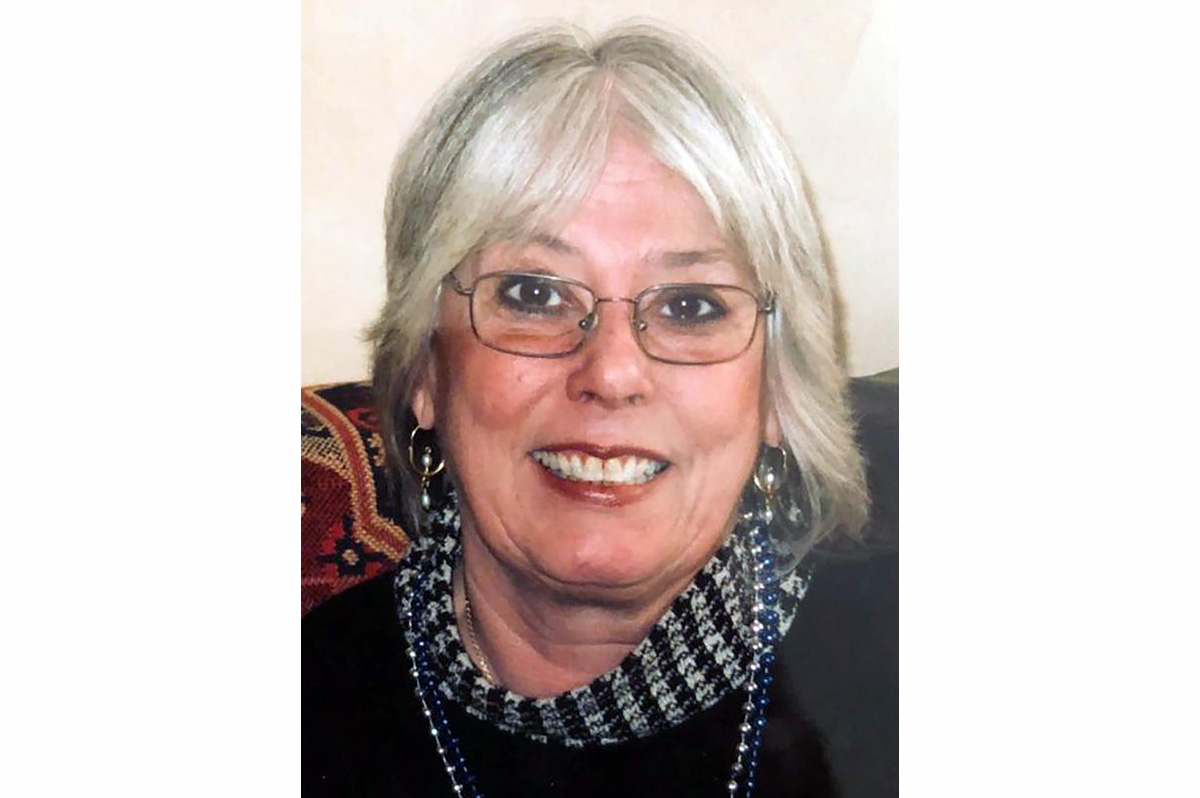
Susan Xenarios, LCSW, a visionary and dynamic leader of New York’s crime victim movement for 50 years and a courageous ally of the LGBTQ community, died on Sept. 6 in Manhattan. She was 79.
In 1974, an assailant held a knife to Ms. Xenarios’s throat and raped her on a rooftop in Upper Manhattan. At a time when few sexual assault victims spoke out, she began a lifelong, public campaign to improve the care and treatment of survivors and to reform laws and police procedures. Along with her high-profile advocacy, she never stopped counseling individual survivors of crime, pioneering breakthrough therapeutic interventions.
Ms. Xenarios led the creation of New York’s first program to provide assistance to survivors of sexual assault, the state’s first clinical program for male survivors, and the New York Sexual Assault Forensic Examiner (SAFE) Program, which ensures survivor-centered emergency room protocols, including evidence collection. She served as executive director of the Crime Victims Treatment Center in New York City for 40 years (1977 -2017).
Ms. Xenarios also was a driving force behind several state laws to advance the rights of crime survivors, including a 1993 law protecting the confidentiality of rape crisis center communications, the Hate Crimes Act 2000, which included enhanced penalties for hate-motivated crimes, including anti-LGBTQ assaults, and the 2015 “Enough is Enough” law, one of the first laws in the nation to require all colleges to adopt a set of comprehensive procedures for addressing sexual violence on campuses.
“Susan was a force of nature, a mentor, an extraordinary ally to the LGBT community, and a dear friend,” said Bea Hanson, director of the New York State Office of Victim Services, principal deputy director of the federal Office on Violence Against Women during President Barack Obama’s administration (2011-2017), and director of client services of the New York City Gay and Lesbian Anti-Violence Project (1991-1997). “She was a leader in advocating for the rights of sexual assault survivors and all crime victims. She spoke truth to power with a smile on her face and love in her heart. She will be missed.”
“Susan was the greatest champion and friend of LGBT victims of crime there ever was or ever will be,” said Matt Foreman, former executive director of the NYC Gay and Lesbian Anti-Violence Project (1990-1996) and the Empire State Pride Agenda (1996-2003). “She was one of the first to recognize the prevalence of sexual assault against men and she created the first program to help male survivors. When there was enormous pressure to pass a hate crimes law that did not include anti-LGBT offenses, she made sure the larger movement did not abandon us. She understood the harmful effects of having terms like ‘sodomy’ and ‘deviate sexual intercourse’ in New York State law and led the successful drive to purge them from the books. She was so genuinely warm and supportive, I was shocked when I learned that she wasn’t a lesbian.”
A memorial service will be held on Saturday, Sept. 20, at 11 a.m. at West End Collegiate Church, 245 W. 77th St. in Manhattan.




















